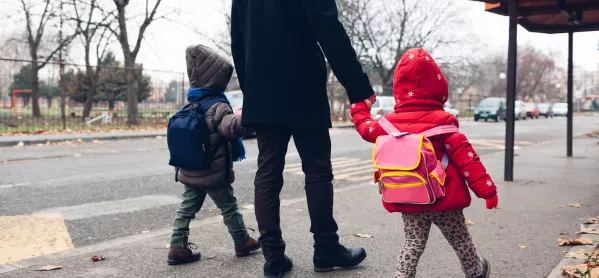- Home
- Pupils ‘very minor players’ in spreading Covid
Pupils ‘very minor players’ in spreading Covid

Children are “very minor players” in the transmission of coronavirus and opening schools would “add little” to the reproduction rate of infection, a leading expert has said.
Professor Russell Viner, president of the Royal College of Paediatrics and Child Health and a member of the government’s Sage scientific advisory group, told BBC Radio 4‘s Today programme this morning that “reopening schools is one of the least risky things we can do”.
His comments were echoed by education secretary Gavin Williamson, who said there was little evidence of transmission in schools.
Related: ‘Very little evidence’ coronavirus is spread in schools
Children’s commissioner: Schools should be ‘the last places to be locked down’
Research: Opening schools risks double strength second Covid wave
However, teachers, scientists, opposition politicians and the children’s commissioner for England, Anne Longfield, have all called for improvements to testing before pupils return.
Prime minister Boris Johnson has said it is the “national priority” to get children back in class in England next month, but he has been warned by scientific advisers that “trade-offs” may be necessary to keep transmission down.
Ms Longfield welcomed Mr Johnson’s commitment to make children the priority after previously accusing ministers of treating them as “an afterthought”.
But she said regular testing of pupils and teachers, perhaps as frequently as weekly, could be needed even if they do not exhibit symptoms to keep transmission rates down.
Prof Viner said that while children can and do transmit this virus they are “very minor players in the transmission overall”.
He added: “We cannot be in a risk-free society and this is about the risk balance.
“What is the risk balance equation and I think that’s separate for children and young people themselves.
“It’s very clear for them the benefits and risks, the balance is for them to be back at school.
“For broader society, look, I think it’s also clear that reopening schools is one of the least risky things we can do.
“Anything we do that reopens society will add a small or a larger amount to the overall population reproductive number and for schools we believe that it’s a relatively minor player, it would add little to the overall population R.”
However, Greater Manchester’s mayor Andy Burnham told BBC Breakfast on Monday that the test and trace programme had to be better to give parents the confidence to send their children back to school.
He added: “It’s got to be the top priority, getting kids back to school,
because they have had huge disruption this year.
“We have got to make every arrangement possible so that people can have that peace of mind.
“But it does point then at the test and trace system, it isn’t yet good enough and I am saying to the government we need to work together to get this system right over August so that we can then both of us give that confidence to those parents.”
In a statement, Mr Williamson said that the government would continue to be guided by the “best scientific and medical advice”.
He added: “The education and care of our children is a national priority.
“We have always been and will continue to be guided by the best scientific and medical advice.
“The latest research, which is expected to be published later this year - one of the largest studies on the coronavirus in schools in the world - makes it clear there is little evidence that the virus is transmitted at school.”
Care minister Helen Whately said the government’s priority was to have children “fully” back at school by September.
She told BBC Breakfast: “Schools are safe and there are extra measures that schools are being advised by Public Health England to take; for instance, to have staggered start and finish times, staggered breaks, to teach children in bubbles, and teachers can enforce, encourage hand washing, hand sanitising, so all the steps that will make schools even safer for our children to be back.”
Asked if schools should stay open in the event of a local lockdown, she said: “Yes, that is the approach, so, for instance, in places like Leicester and Greater Manchester, and areas where we have local restrictions going on, absolutely schools should be still going back. It is essential that children get back into school this autumn term.”
The latest tensions over Covid-19‘s impact on education come as a European study suggested reopening schools was not a major danger in community transmission of the disease.
The European Centre for Disease Prevention and Control studied 15 countries, including the UK, and concluded: “There is conflicting published evidence on the impact of school closure/re-opening on community transmission levels, although the evidence from contact tracing in schools, and observational data from a number of EU countries suggest that re-opening schools has not been associated with significant increases in community transmission.”
Register with Tes and you can read two free articles every month plus you'll have access to our range of award-winning newsletters.
Keep reading with our special offer!
You’ve reached your limit of free articles this month.
- Unlimited access to all Tes magazine content
- Save your favourite articles and gift them to your colleagues
- Exclusive subscriber-only stories
- Over 200,000 archived articles
- Unlimited access to all Tes magazine content
- Save your favourite articles and gift them to your colleagues
- Exclusive subscriber-only stories
- Over 200,000 archived articles



